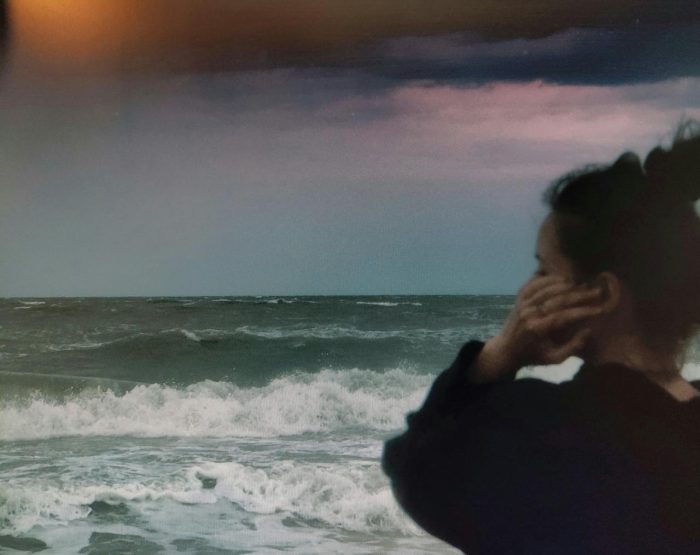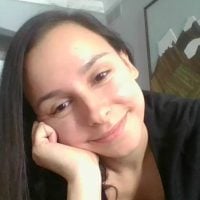In the first verse of the Tao Te Ching, a classic manual that teaches us how to live in harmony with ourselves, each other, and the natural ebbs and flows of life, written sometime between the sixth and fourth century BCE, the Chinese philosopher Lao Tzu writes:
“The Tao that can be told
is not the eternal Tao.
The name that cannot be named
is not the eternal Name.
The unnamable is the eternally real.
Naming is the origin
of all particular things.
Free from desire, you realize the mystery.
Caught in desire, you see only the manifestations.
Yet mystery and manifestations
arise from the same source.
This source is called darkness.
Darkness within darkness.
The gateway to all understanding.”
Whilst reading this passage, one might wonder: What is this mystery Lao Tzu speaks of? And if this mystery applies to all things, am I somehow a part of it as well?
The Oracle of Delphi, a well-known prophetic institution in ancient Greece, is said to be associated with one simple yet profound maxim. That maxim is: “Know thyself.”
What does that mean, you may ask? I know my name, my gender, my nationality, my personal history and background, the various roles I play throughout the course of my life, and so on. I know what I stand for and what I don’t stand for, I know my beliefs, opinions, and my religious and political affiliations—or lack thereof.
True, you know all of that, but have you ever noticed how incredibly fickle, how undeniably fleeting, it all is?
You may call yourself a “democrat” or a “republican” for 10 to 20 years, but if a politician associated with your party suddenly said or did something that upset your values, you would likely change your allegiance to that party in a minute or two.
You’ve been a carpenter for 30 years, but eventually, life takes another turn and you’re forced to retire.
You’re feeling great one day and the world seems like a beautiful place to be in. The following day, however, you’re feeling downtrodden and just like that, the world looks ugly and grey. Your body is vital and youthful for 40 to 50 years, and then slowly but surely, it begins to age.
Who are you now? Is it fair to say that what is true is always changing, always in a state of flux? Or is there something deeper within us, something more eternal and primordial beneath each passing cloud?
In order to answer this question, we must ask ourselves one deceptively simple question: what is the nature of the self?
In his book, Being Myself, which explores the essential nature of our self, Rupert Spira states:
“Before we know anything else, we know that we are. We know our own being. We know that I am. The knowledge ‘I am,’ the awareness of being, is the mind’s primary knowledge.”
But what is being, you ask? As a noun that stands for existence itself, being cannot be coloured nor qualified. Therefore, it must be that deeper and more subtle part of us that never leaves or changes; a part of us that we always so conveniently overlook in favour of all of the things that do change.
Indeed, our being can be felt as the pulse within the stillness, as the pause between the words, and the silence between each loud and relentless thought. It is our centre, and if you notice, it neither comes nor goes. It is the same being that we felt when we were five years old making sandcastles on the beach, and it is the same being that we feel now, at 50, watching our youngest child go off to college. Everything under the sun changes, but this core essence never ever does.
Furthermore, if we really tune into it, we may notice that it seems, like the sun, to be self-luminous. It knows itself as itself. It is so vital and so aware. As awareness, it has no limits nor boundaries, as awareness itself is not localized.
Could all of this allude to something much more fundamental and profound about who and what we truly are beyond all names, appearances, and concepts?
I’ve often looked into empty space or a vast open field and thought to myself: there is just something so pristine, so subtle, and yet so powerfully riveting about staring into space or openness like this, watching as the sun gently rises or falls like a big, golden wave caressing the earth. It does so as if to say to all the earth’s inhabitants: I lend myself to you, like arms to a bride, so that I may wed you not in secrecy, but in transparency, and together, we shall reveal a splendour more bewitching than any poet could transcribe.
In a similar vein, there is something so breathtaking about mere silence that we often so naturally and willingly seek it at those first moments at dawn, or succumb to its gravity when words fail, retreat, or otherwise escape us.
It is also in these pivotal moments when we must ask ourselves a variation of the same existential question: that is, what is it in me, and in us all, that feels so helplessly drawn to the natural world as well as to silence and space? What is it that so subtly and yet so persistently calls or beckons us back to these states or sights, time and time again, like the ocean beckons the wave to return to itself?
Seldom, however, do we ever ask ourselves these kinds of questions, caught as we are in our own illusions.
Yet, all our lives, we seem to suffer under these illusions—even the more pleasant ones—because everything has it’s light and it’s shadow. You can be wealthy and be able to afford five-star vacations every year and nevertheless feel as though your life fundamentally lacks a deeper sense of meaning and purpose. You begin to wonder who your real friends are. You may wonder whether people only like you because of what you have or what you can do for them. Sooner or later, there will be more things to worry about other than your finances. Or, you could get the job position you’ve been working so hard for, and after a year or two, it begins to feel like any other old job you’ve had in the past, and quite frankly, now seems like another burden on your shoulders.
When we don’t know who we truly are and rest in that, we suffer, and we continue to go look for a lasting sense of peace, purpose, and happiness outside of ourselves. Sure, it may seem to quell the pain for a little while, but eventually, the things we use to cover it up either leave or don’t produce the same effect. Is this how we want to continue to live?
Rumi, the famous Sufi poet once said, “The desire to know your own soul will end all other desires.”
The poet and Saint Kabir of India once said, “Friend, hope for the Guest while you are alive. Jump into experience while you are alive! Think…and think… while you are alive. What you call ‘salvation’ belongs to the time before death. If you don’t break the ropes while you are alive, do you think ghosts will do it after? The idea that the soul will join the ecstatic just because the body is rotten—that is all fantasy. What is found now is found then.”
So, take heed: know yourself now, while you are alive, and watch your life unfold in ways that align with the truth of who you truly are as opposed to what you’ve only imagined yourself to be.
~
 Share on bsky
Share on bsky


Read 2 comments and reply